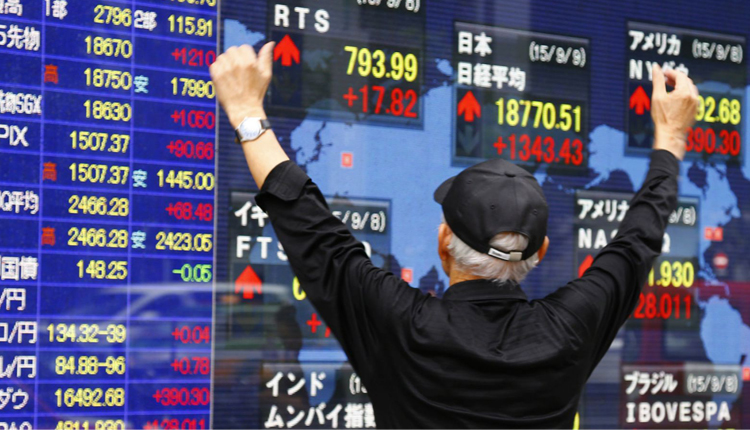Asian stocks traded mostly higher on Thursday mid-morning with Chinese mainland indexes rising more than one percent.
The Shanghai composite traded up 1.82 percent and the Shenzhen composite rose 2.54 percent.
On Wednesday, Chinese data showed the country’s exports for July rose 12.2 percent on-year, beating analyst expectations for a 10 percent growth. The July data was the first reading since U.S. tariffs on $34 billion worth of Chinese imports came into effect earlier that month.
In Australia, the ASX 200 rose 0.68 percent. The energy subindex reversed early losses of more than 0.8 percent, following an overnight drop in oil prices, to trade near flat. Shares of Santos retraced some of its losses of more than 1 percent to trade down 0.38 percent, Oil Search gained 0.22 percent and Woodside Petroleum was down 0.27 percent.
Oil prices fell more than three percent on Wednesday but recovered slightly on Thursday during Asian hours.
Global benchmark Brent was up 0.36 percent at $72.54 a barrel while U.S. crude rose 0.24 percent to $67.05 at 11:20 a.m. HK/SIN.
Japan’s Nikkei 225 was down 0.27 percent and the Topix index was lower by 0.31 percent. Major automakers declined with shares of Toyota down 0.65 percent, Nissan off by 0.62 percent and Honda lower by 1.23 percent.
Shares of Mazda Motor fell 1.38 percent, Suzuki Motor was down 6.28 percent and Yamaha Motor lost 3.86 percent. Those declines followed reports that the automakers conducted improper fuel and emissions tests on their vehicles, according to Japan’s transport ministry.
South Korea’s Kospi traded near flat and Hong Kong’s Hang Seng index was up 0.87 percent.
In the U.S. overnight, the market was mostly little changed following the unveiling of new Chinese tariffs on American goods.
“There was a lack of data overnight with the market focusing on trade tension between the U.S. and China,” David Plank from ANZ Research said in a morning note.
Beijing said on Wednesday that it will retaliate against the latest round of U.S. tariffs on Chinese imports. The Chinese Ministry of Commerce announced a 25 percent tariff on $16 billion worth of American goods. The 333 goods being targeted by China include vehicles such as large passenger cars and motorcycles.
The announcement came after the U.S. Trade Representative’s office released a finalized list of $16 billion worth of Chinese goods that will be hit with tariffs, taking effect on Aug. 23. The latest U.S. list brings the total amount of Chinese goods facing a 25 percent tariff to $50 billion.
Analysts said that reaction to the news has been “fairly muted” apart from the drop in oil prices.
“The move lower in [oil] prices appears to have been driven after China announced that it will levy 25 percent tariffs on U.S. gasoline, diesel and other goods in response to the $16 (billion) tariffs announced by the U.S. yesterday,” Rodrigo Catril, senior foreign-exchange strategist at the National Bank of Australia, wrote in a morning note.
Elsewhere, the U.S. dollar index, which measures the greenback against a basket of currencies, traded at 95.063 at 11:06 a.m. HK/SIN.
Among other currency pairs, the Japanese yen traded at 110.77 to the dollar, strengthening from levels above 111.6 in the previous week. The Australian dollar traded at $0.7445 and the euro fetched $1.1615.
Source: Reuters


